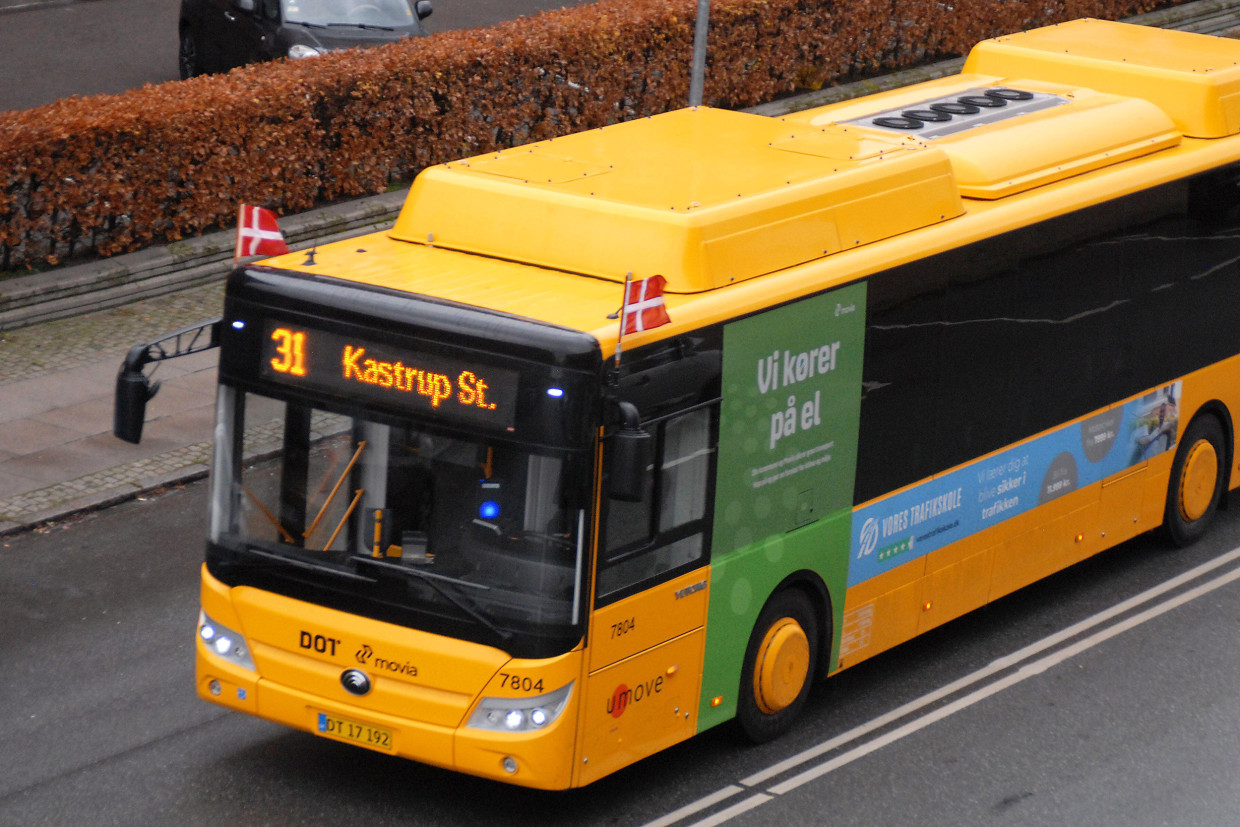Mounting worries regarding reliance on technology are transforming Europe’s strategy for public transit and digital security. A sector that was previously calm and effective in Scandinavia is now the focal point of an intense discussion concerning national defense and digital autonomy.
Growing concerns regarding Chinese-manufactured buses
Public transportation operators in Denmark and Norway are confronting a potential security flaw in their electric bus fleets, specifically in vehicles produced by Yutong, the world’s largest bus manufacturer based in Zhengzhou, China. The issue stems from the buses’ ability to receive remote software updates and diagnostic checks — a feature that, while technologically advanced, also raises concerns that the vehicles could be immobilized or manipulated from afar.
Movia, the premier public transportation authority in Denmark, has conceded that this wireless capability could enable an external entity—be it the producer or a cybercriminal—to remotely incapacitate a bus. Jeppe Gaard, Movia’s chief operating officer, clarified that this issue isn’t exclusive to Chinese manufacturers but represents a wider concern linked to the growing digital integration in contemporary vehicles. Both electric cars and buses, he pointed out, are heavily dependent on networked systems that are, theoretically, susceptible to remote access and deactivation.
Since 2019, Movia has incorporated more than 260 Yutong buses into its fleet serving Copenhagen and eastern Denmark. Similar concerns were echoed in Norway, where Ruter, a major public transportation provider, conducted its own investigation. The company carried out controlled tests on both Yutong and Dutch-made VDL buses in secure, underground facilities. The findings showed that while the Dutch models lacked remote update capabilities, Yutong maintained direct digital access to its vehicles for software updates and diagnostics — meaning that, at least theoretically, the buses could be rendered inoperable remotely, even though they could not be remotely driven.
China’s response and data protection assurances
Yutong has responded to these claims by affirming its compliance with international regulations and emphasizing its commitment to data privacy and cybersecurity. The company stated that all vehicle data within the European Union is securely housed in an Amazon Web Services data center located in Frankfurt, Germany. Yutong further assured that all stored information is encrypted, protected by strict access controls, and inaccessible without explicit customer authorization.
Despite these assurances, European officials and transportation firms maintain a wary stance. This event has amplified conversations regarding Europe’s increasing reliance on Chinese technology—a connection marked by reciprocal economic advantages yet overshadowed by profound geopolitical suspicion. Beijing’s purported participation in cyber espionage, intellectual property theft, and surveillance operations has prompted numerous European leaders to reevaluate the enduring consequences of their dependence on Chinese providers for essential infrastructure.
A broader European dilemma
The scrutiny surrounding Yutong’s buses is only the latest episode in Europe’s complex technological relationship with China. Across the continent, policymakers are attempting to strike a delicate balance between leveraging China’s advanced manufacturing capabilities and protecting national interests. Recent events — including the Netherlands’ decision to seize control of the Chinese-owned chipmaker Nexperia — have fueled concerns that Europe’s automotive and technology sectors could face major disruptions in the event of diplomatic or trade tensions.
Many administrations have already implemented measures to restrict susceptibility to potential weaknesses. Several European countries, emulating the United States, have purged Huawei and ZTE apparatus from their 5G infrastructure, citing espionage and data manipulation hazards. Currently, focus has shifted to the rapidly expanding sector of Chinese electric vehicles. As per JATO Dynamics, Chinese EVs saw their market penetration in Europe double in early 2025, surpassing 5% — a statistic that underscores both consumer demand and regulatory apprehension.
China, for its part, has dismissed Western fears as unfounded and politically motivated. Earlier this year, a spokesperson for China’s Foreign Ministry criticized U.S. restrictions on Chinese automotive technology, arguing that such measures “overstretch the concept of national security.” Chinese officials maintain that their companies operate transparently and pose no threat to foreign nations.
Western intelligence concerns
Security experts across Europe, however, remain skeptical. Former MI6 chief Richard Dearlove warned that Western governments are facing a challenge similar to the one posed by Huawei during the 5G rollout. In his view, the increasing prevalence of connected vehicles built by Chinese manufacturers could create new vulnerabilities. He suggested that, in a worst-case scenario, China could theoretically disable fleets of electric vehicles in major cities — a scenario that could disrupt transportation networks during a crisis.
Still, some cybersecurity professionals argue that such a scenario, while technically feasible, is unlikely. Ken Munro, founder of the British-American firm Pen Test Partners, noted that any internet-connected vehicle — whether produced by a Western or Chinese company — carries inherent risks of remote interference. Even well-known brands like Tesla, he explained, depend on software connectivity that could be exploited under specific conditions.
In response to these concerns, Ruter has implemented a series of protective measures, including enhanced cybersecurity protocols, firewalls, and stricter oversight of future vehicle acquisitions. The company is also working with national authorities to establish clearer cybersecurity standards for public transport systems. However, experts remain divided on whether such precautions are sufficient. Munro cautioned that the only foolproof method to eliminate the risk would be to completely remove online connectivity from vehicles — a move that would also hinder the ability to perform critical updates and maintenance remotely.
The intersection of innovation and vulnerability
The debate unfolding in Scandinavia underscores a broader paradox of the digital age: the same technologies that enable efficiency and innovation can also expose systems to new forms of risk. As cities strive to modernize public transport and reduce carbon emissions through electrification, they must also grapple with questions of technological sovereignty, data privacy, and national security.
Europe’s dependence on Chinese-manufactured parts and programs reaches well beyond its public transportation systems. From its communication grids to its green energy facilities, the continent’s advancement is profoundly linked to China’s industrial framework. As international conflicts escalate, the task for European countries will involve safeguarding their technological autonomy while continuing their journey towards ecological balance and pioneering development.
The debate over Yutong’s bus fleet highlights a critical point: cybersecurity is now as vital as sustainable power in defining the trajectory of city transportation. This challenge extends beyond a single nation or producer, marking a pivotal moment for the subsequent stage of Europe’s digital evolution.
In conclusion, as Ken Munro so aptly put it, the core of the discussion centers on a single concept—trust. And in our progressively intertwined global landscape, trust could very well emerge as the most precious and delicate commodity.




